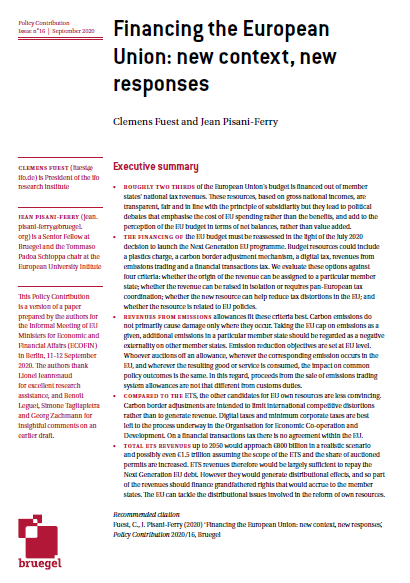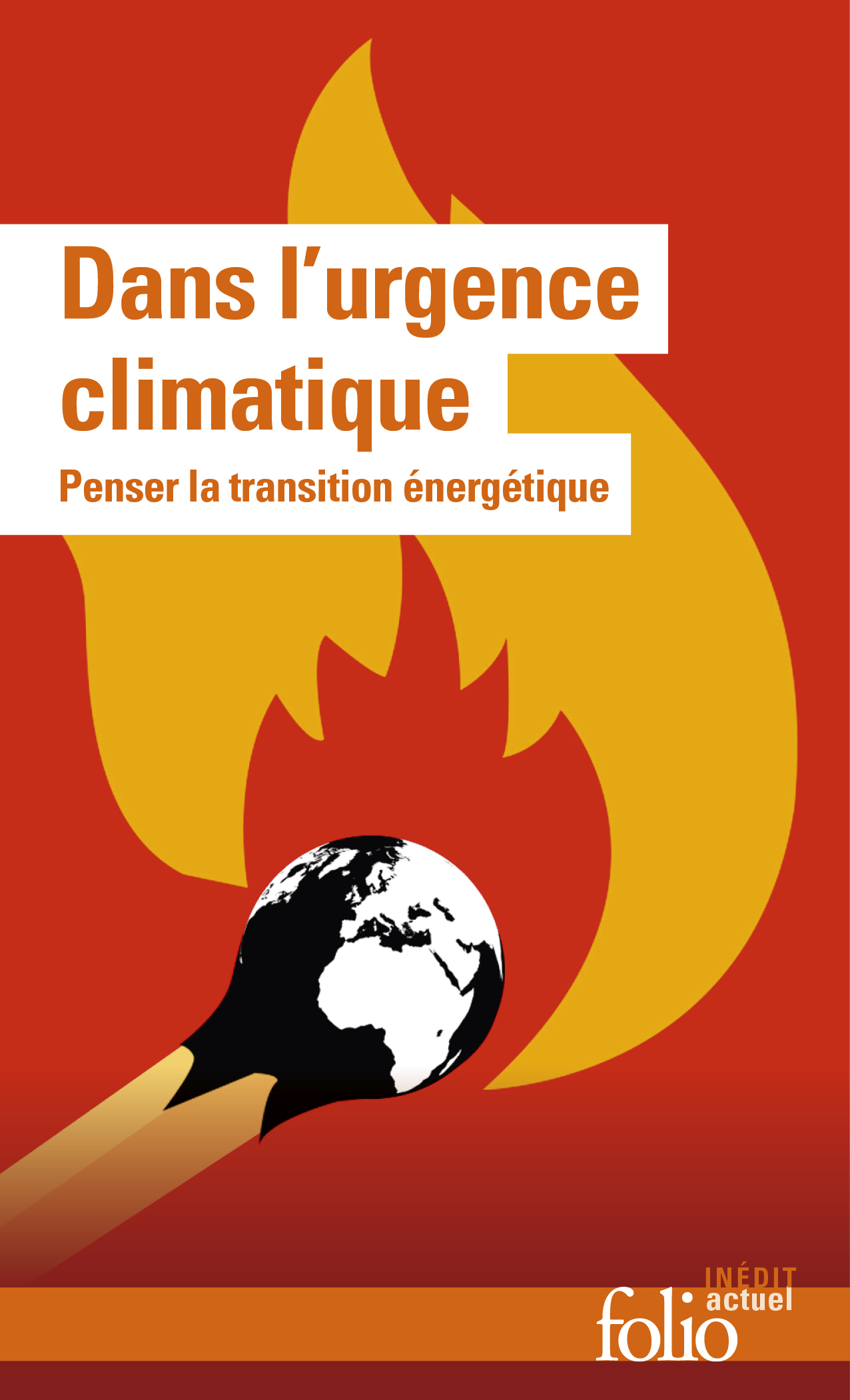Policy Contribution
Financing the European Union: New Context, New Responses
With the European Union for the first time taking on debt to help finance the economic recovery from the coronavirus, new resources are needed to fund the EU budget. Various ideas have been floated – including a digital tax and a financial transactions tax – but the most appropriate new resource would be revenues from the EU emissions trading system, which could provide enough funding to repay the EU's coronavirus borrowing.
This Policy Contribution is an edited and abridged version of a paper presented at the Informal Ecofin under German presidency in Berlin, Germany on 11 September 2020
Roughly two thirds of the European Union’s budget is financed out of member states’ national tax revenues. These resources, based on gross national incomes, are transparent, fair and in line with the principle of subsidiarity but they lead to political debates that emphasise the cost of EU spending rather than the benefits, and add to the perception of the EU budget in terms of net balances, rather than value added.
The financing of the EU budget must be reassessed in the light of the July 2020 decision to launch the Next Generation EU programme. Budget resources could include a plastics charge, a carbon border adjustment mechanism, a digital tax, revenues from emissions trading and a financial transactions tax. We evaluate these options against four criteria: whether the origin of the revenue can be assigned to a particular member state; whether the revenue can be raised in isolation or requires pan-European tax coordination; whether the new resource can help reduce tax distortions in the EU; and whether the resource is related to EU policies.
Revenues from emissions allowances fit these criteria best. Carbon emissions do not primarily cause damage only where they occur. Taking the EU cap on emissions as a given, additional emissions in a particular member state should be regarded as a negative externality on other member states. Emission reduction objectives are set at EU level. Whoever auctions off an allowance, wherever the corresponding emission occurs in the EU, and wherever the resulting good or service is consumed, the impact on common policy outcomes is the same. In this regard, proceeds from the sale of emissions trading system allowances are not that different from customs duties.
Compared to the ETS, the other candidates for EU own resources are less convincing. Carbon border adjustments are intended to limit international competitive distortions rather than to generate revenue. Digital taxes and minimum corporate taxes are best left to the process underway in the Organisation for Economic Co-operation and Development. On a financial transactions tax there is no agreement within the EU.
Total ETS revenues up to 2050 would approach €800 billion in a realistic scenario and possibly even €1.5 trillion assuming the scope of the ETS and the share of auctioned permits are increased. ETS revenues therefore would be largely sufficient to repay the Next Generation EU debt. However they would generate distributional effects, and so part of the revenues should finance grandfathered rights that would accrue to the member states. The EU can tackle the distributional issues involved in the reform of own resources.
Recommended citation
Fuest, C., J. Pisani-Ferry (2020) ‘Financing the European Union: new context, new responses’, Policy Contribution 2020/16, Bruegel










